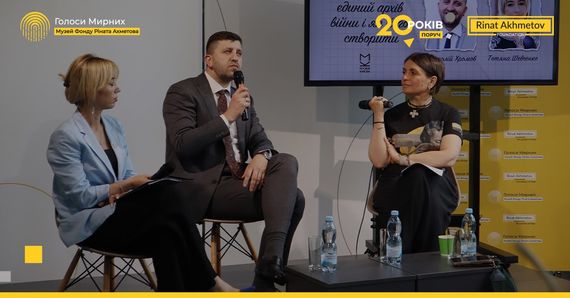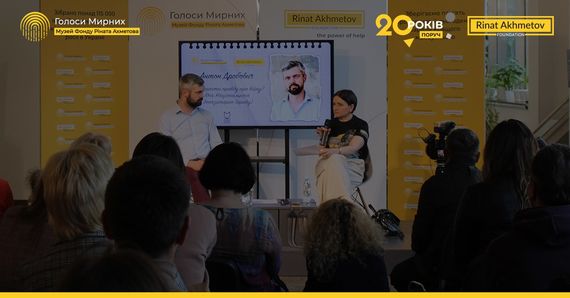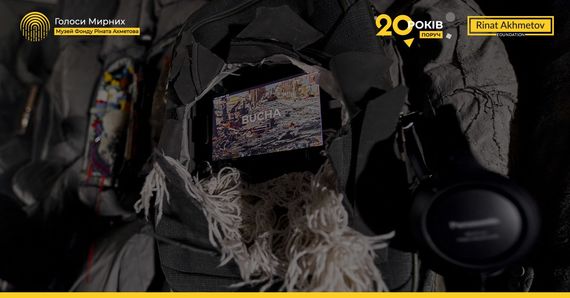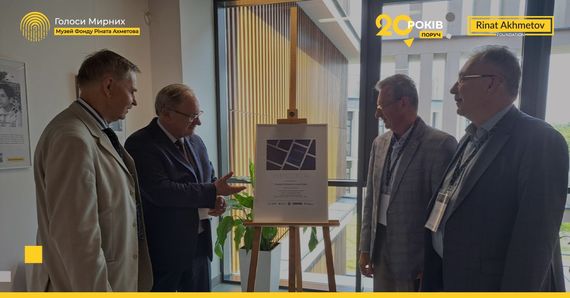“Archives Are the Memory of the People”: A Public Interview with Representatives of the State Archival Service for the Rinat Akhmetov Foundation’s Museum of Civilian Voices

On June 18, a public interview was held at the Kyiv City History Museum with Anatolii Khromov, Head of the State Archival Service of Ukraine, and Tetiana Shevchenko, First Deputy Head of the State Archival Service of Ukraine. The meeting was organised within a series of interviews conducted by the Museum of Civilian Voices by the Rinat Akhmetov Foundation.
The topic of the discussion was “Why Ukraine Needs a Unified War Archive and How to Create It”. The conversation was moderated by Nataliia Yemchenko, Director of Communications at SCM and member of the Supervisory Board of the Rinat Akhmetov Foundation.
During the interview, the discussion focused on guarantees for preserving documents in state archives, as well as the synergy between public and private organisations and the state in creating a war archive.
According to the experts, archives are the memory of the people. Like human memory, it can be partial, as it is impossible to remember everything. Therefore, in the war archive, the creation of which is now actively discussed in society, priority should be given to preserving documents related to transitional justice and testimonies that may be used in courts.
“As a state body, we cannot rely solely on civil society initiatives. This is very often a project-based approach, and it is unclear what will happen to these documents when the projects end,” emphasises Anatolii Khromov.
That is why the State Archival Service proposes various forms of cooperation with institutions documenting the history of the war. In particular, it proposes to take these documents into storage. This is especially relevant if a project has fulfilled its task and has ceased its activities.
Tetiana Shevchenko says, “Archives are not just a title and a name. Behind archives lies extensive legislation that regulates the procedure and terms of storage, the value of documents, and the expertise that determines it. We can help conduct the expert review that will allow these documents to obtain the status necessary for further long-term storage.”
The Museum of Civilian Voices by the Rinat Akhmetov Foundation is also making efforts to preserve national memory and already holds over 130,000 stories about the war. This is the world’s largest collection of testimonies from civilians affected by russia’s war against Ukraine.
“At a certain point, the Museum faced the question of what to do with this vast body of documents. For us, the opportunity to continue recording stories and transferring them to the archive would be extremely valuable. The main condition is the creation of a secure ecosystem that will ensure reliable storage,” emphasised Nataliia Yemchenko.
The public interviews take place within a series of events aimed at preserving the memory of the war. Currently, in the space of the Museum of Civilian Voices located at the Kyiv City History Museum, the documentation project “Diaries of the Civilians: Voices of those who survived and those who did not” is ongoing.
Follow the announcements of events on the social media pages of the Rinat Akhmetov Foundation and on the Museum’s website: Home - Civilian Voices, Museum of the Rinat Akhmetov Foundation.



